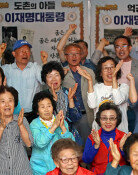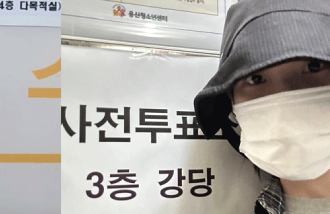Well negotiated free trade deal or humiliating?
Well negotiated free trade deal or humiliating?
Posted December. 06, 2010 11:16,
Political parties in Korea expressed widely differing stances Sunday after Seoul announced the results of supplementary negotiations over the bilateral free trade agreement with the U.S.
An intense war of nerves was spotted at many places over the revised accord.
On the results of negotiations on cars, the ruling Grand National Party gave a positive assessment, saying Korea has nothing to lose.
Opposition parties had a wholly different view, with one saying, The negotiations were unfair as Korea accepted most of the U.S. demands.
Signs of an intense conflict have come ahead of the process to win parliamentary ratification of the trade deal in the coming months.
○ Widely differing responses
Ruling party floor leader Kim Moo-sung and policy committee chairman Ko Heung-kil held a news briefing at party headquarters in Seouls Yeouido district, highlighting the positive aspects of the finalized deal.
The volume of (Korean car) export to the U.S. is projected to reach 930,000 units this year, but the volume of (American car) imports to Korea is about 10,000, or 1/100th that of Koreas, Kim said. Since the types of exported and imported cars are totally different grades, the accord has been very well negotiated to ensure that (Korean car) exports to the U.S. market continue to rise.
(The results of the additional negotiations) are not humiliating (as opposition parties claim), and regulations in the U.S. market call for free trade in principle but could get harsh. For us to avoid a second Toyota fiasco (as a kind of trade retaliation), the accord can be considered a well negotiated deal.
Leaders of the ruling party, government and presidential office held a meeting and were briefed by Trade Minister Kim Jong-hoon on the results of the additional negotiations at the Prime Ministers Office in Seoul Sunday.
Lim Chae-min, chief of staff for the Prime Ministers Office, quoted one of the meetings participants as saying, The Korea-U.S. FTA could further consolidate the foundation for the Korea-U.S. alliance.
In contrast, main opposition Democratic Party Chairman Sohn Hak-kyu told Minister Kim, You conducted negotiations completely in favor of the U.S., as the public feels anxious and (South) Korea receives national security support from the U.S. following North Koreas shelling attack on Yeonpyeong Island.
Sohn rejected Kims offer of a briefing when the minister visited the National Assembly.
The Democratic Partys policy committee chairman Jun Byung-hun said, The Lee Myung-bak administration has successfully conducted humiliating negotiations to unilaterally favor the U.S. by taking advantage of North Koreas shelling. It must apologize to the public and conduct a completely new round of renegotiation.
We demand that the government immediately dismiss Kim Jong-hoon, who led the renegotiations and failed. If the government seeks to pass the bill, we have no choice but to stage a full-scale struggle to block the bills ratification jointly with other parties and civic organizations.
○ Tough road for parliamentary ratification
The new ratification bill can pass the parliamentary foreign affairs and trade committee and the plenary session if more than half of registered members attend the vote and more than half of lawmakers in attendance vote for the deal. Eighteen of the committees 28 members are from the ruling party, and thus the party can railroad the bill through if necessary.
Opposition parties, however, could use physical force to block the bill from submission for a vote as they did in April last year, when the original bill was ratified by the committee. At the time, the ruling party railroaded the bill despite a physical brawl with opposition party lawmakers.
Committee chairman and ruling party member Nam Kyung-pil told The Dong-A Ilbo Sunday, The Foreign Affairs and Trade Committee must hold in-depth negotiations over the content of the additional negotiations and gather public opinions, adding, We must also closely watch the response of the U.S. Congress, the partner of the agreement.
gun43@donga.com jin0619@donga.com






![[속보]김문수 “역사적 큰 죄 지어…국힘 민주주의 사명감 부족”](https://dimg.donga.com/c/138/175/90/1/wps/NEWS/IMAGE/2025/06/04/131746434.1.jpg)
